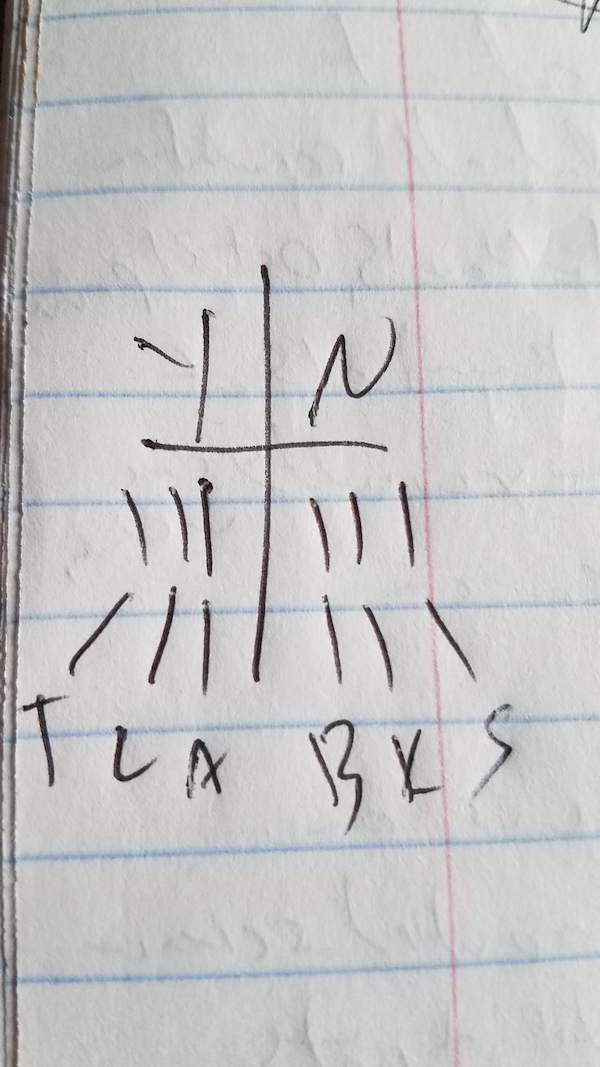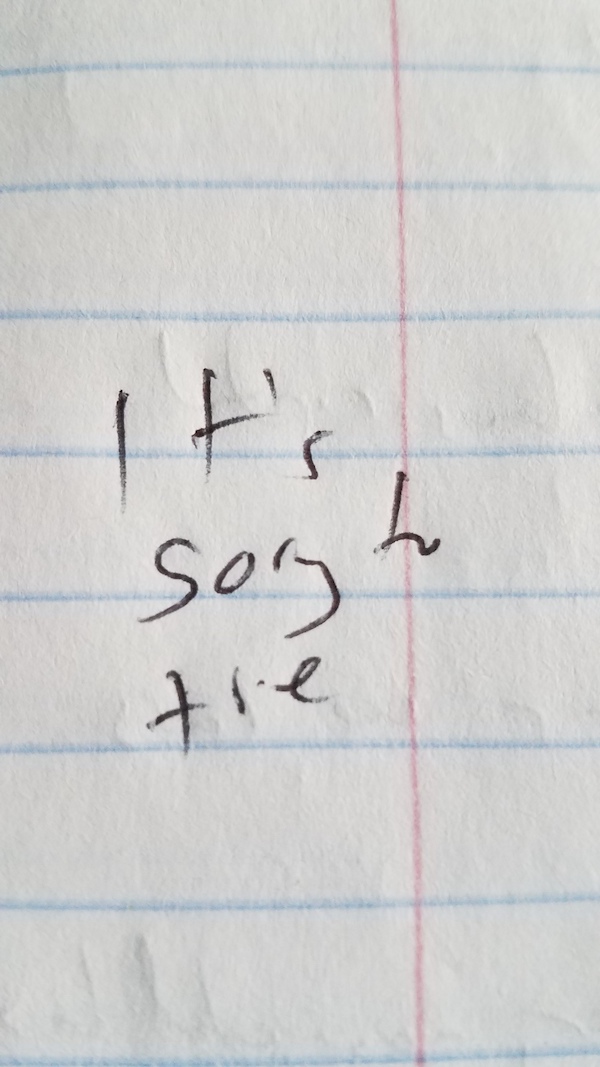WDFW Commissioner Explains No Vote On 2022 Spring Bear Hunt
With it all said and done now, I guess the most surprising thing to me isn’t that the Washington Fish and Wildlife Commission tied on setting the 2022 spring black bear permit hunt, effectively suspending it a year – and worst-case scenario, forever.
It was the key vote against it: Chair Larry Carpenter.

I had him pencilled into my yes vote column, based on the Mount Vernon man’s long allegiance and support of hunting and fishing opportunities and the scientific management thereof.
Here’s a guy who’s been harvesting Chinook, deer, all manner of waterfowl and upland birds, not to mention a few coyotes, literally since I was a gleam in my parents’ eyes, and what’s more, sold fishing and hunting boats to generations upon generations of sportsmen before retiring a few years ago. The former Navy man has also served on an international panel that carried out US-Canada salmon treaties.
I say “pencilled” because it also wasn’t exactly clear where Carpenter stood, given his lack of public comments in the lead up to the vote.
Oh, we knew where most of the other commissioners were, given their questions, allegiances and values.
Fred Koontz of Duvall, Lorna Smith of Port Townsend and Barbara Baker of Olympia were solidly in the no column, while Kim Thorburn of Spokane, Molly Linville of Palisades and Jim Anderson of Buckley ended up in the yes column.

I saw Don McIsaac of Hockinson, near Vancouver, as a much more questionable vote than Carpenter.
They flip flopped – McIsaac turned out to be a yes, Carpenter a no.
During the meeting, Carpenter couched his vote as a pause, a chance for WDFW to “confirm the accuracy of our information and cover our bases in the assault on this hunt.”
His use of the word “assault” was a clear signal of his true feelings, but afterwards, sources I consulted to understand what had just happened weren’t so sure.
The vote was likened to a knife in the back – that Carpenter had just sold hunters down the river.
There’s a nagging suspicion that his out-of-character vote had been ordered from On High.
Given that Carpenter’s term was officially up in October 2020 and that he has been serving ever since at Governor Jay Inslee’s whim, he can’t be trusted and it is time he resign before doing more damage, one person told me in so many words.
Another hinted he’s on his way out soon.

It has been a long overall great ride on the commission for Carpenter.
He joined in December 2011 and you could say I’ve watched him in action a time or two over the years. I’ve always appreciated his comments and leadership, the fair way he runs meeting since being elected chair in early 2019 and as the vice chair before then, acknowledging the disparate voices to be heard when it comes to Washington fish and wildlife. He’s held directors’ feet to the fire when need be.
He’s also been noticeably in the background in recent months.
Friday morning he spoke to the recent passage of his son, John. “For a few days I wasn’t functional,” he said in thanking the commission for their support during a difficult time, running interference for him, and a gift basket they’d sent.
They are a genuinely collegial bunch even as they represent different interests and values.
Friday afternoon I asked Carpenter if he’d like to say more about the meeting and he said to call him the next day.
As we spoke late Saturday morning, he said he’d been a yes going into meeting but had gone “back and forth, back and forth” as he closely listened to WDFW Carnivore Manager Stephanie Simek’s final presentation and fellow commissioners’ discussion.
There is zero conservation concern around holding the hunt – just 145 bears were taken on 668 permits this spring, with only one determined to be a lactating female – and WDFW staffers and Director Kelly Susewind all urged them to pass it. Susewind told the commission it neither impeded or impacted the population and that it fell within WDFW’s opportunity mandate.
Hunt opponents had to abandon the “follow the science” mantra and instead lean on emotional values and social concerns that, by their logic, could be even more broadly applied to hunts and fisheries.
“It’s a sad day for wildlife management when appointed game commissioners allow a vocal minority using nothing but emotion to overrule and cancel the state’s own trained wildlife biologists using accepted scientific principles and methods,” said Brian Lynn, vice president marketing and communications for the national Sportsmen’s Alliance. “The fact that it’s primarily the east side of the mountains once again suffering under the mob rule of the I-5 corridor only makes it more egregious.”
Carpenter characterized his no vote as “the path of least resistance” in the short term to get the hunt back on solid ground for the long term.
In the background, he explained, litigation loomed, just as it had last December as the commission approved the 2021 spring hunt on an 8-1 vote. Indeed, a lawsuit was filed last January and while ultimately rejected by a superior court judge just before the bear season began, it was a sign of things to come.
Carpenter didn’t want to see a court injunction stop next season’s hunt.
WDFW has found itself increasingly in court over carnivore and steelhead management and it is effectively binding the agency’s hands on management tools and now impacting recreational opportunity. One frequent filer proudly proclaims her first agency lawsuit and shows no signs of slowing down.
Yet while it took a statewide vote to ban bear baiting and hound hunting in the 1990s, with the commission left all year at an even eight (only two of whom live in Eastern Washington) instead of a full-strength nine, environmentalists effectively needed only four nays to stop the spring bruin hunt.
Carpenter vows it’s only for one season.
“Please take a deep breath,” he said to those angry with him. “My intent is to get it back on the docket next year.”
Why not take the high ground, Carpenter argued to me, and be able to better justify the hunt?
It’s been used as a management tool and a recreational opportunity; just 664 permits were set to be available for 2022, mainly in Northeast and Southeast Washington where bruins also prey on deer fawns and elk calves during spring’s birth pulse and, at least in the former region, there is a relatively high density of black bears, 30 per 100 square kilometers, or 38 square miles.
Carpenter vowed to “put a lot of pressure” on Susewind and Game Division staff to better document what WDFW knows about the state bear population, answer the questions that were brought up in public comment on the 2022 proposal, and then get it reinstated.
“I hope a year from now they feel differently,” he said about those angry with his vote.
Carpenter said the only way to hold the hunt in the future is to put out information those against it can still trust.
That is an echo of something Vice Chair Baker said Friday morning, that accurate bear counts were needed and that when the agency had them, it would have enough information to hold the hunt again, “even an unpopular one.”
“I do believe we will get spring bear hunting back,” Carpenter said. “That is my focus. I just want it to pass anyone’s test.”
I applaud that, understand his strategic reasoning and wish him luck.
The thing is, I also question whether he’ll be on the commission next fall, given his precarious position.
And if he isn’t, whether Friday’s four yesses and any new members that come on board will carry on his work and have the votes to put it over the top.
Early odds at this bookie are low, though some among us are much more optimistic.
I just don’t see the no’s relenting on this gain, nor do I see the Governor’s Office, which appoints commissioners, slipping up. It means too much for them locally and nationally.
It really never was about cub orphaning or theoretical population impacts down the road or any of that, but for at least one year, there will only be seven states – all with plentiful bear populations – offering the spring hunt. Washington was the easiest target, a platform, a template.
It had one very well-informed source tell me, essentially, this is Exhibit 1A for why hunters as well as anglers need to up our game in speaking with lawmakers and the commission and presenting solid arguments in support of scientifically managed opportunities and our state’s fishing and hunting heritage.
I’ll reiterate something I wrote following September’s commission unveiling of a new draft conservation policy and environmental groups pushing Governor Inslee to name more “reform-minded members”: All of this rising together at the same moment means there’s a lot for us to be paying attention to these days.
